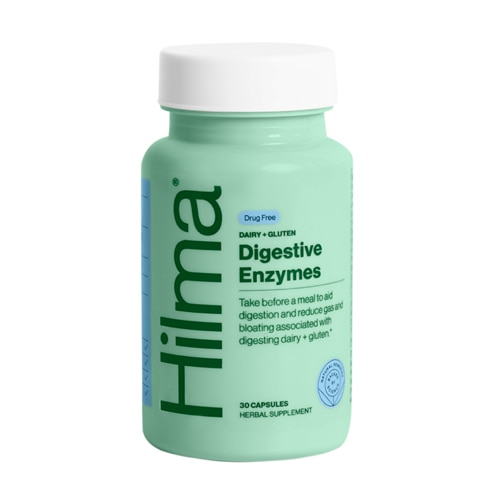[vc_row][vc_column][vc_column_text]The human body is one of the most perfect designs—an entity significantly more sophisticated than artificial intelligence or the fastest, most advanced device.
A simple look at the
immune system is evidence of this. Composed of an intricate network of cells, organs and proteins, it works tirelessly behind the scenes to ward off pathogens and keep you vibrant.

And yet, as diligent and amazing as the immune system may be, it can also work
against you by misinterpreting normal, healthy tissue as foreign invaders. An autoimmune disease may ensue as a result—a disorder in which your immune system goes to war with your own body and triggers a widespread inflammatory response. In turn, you may experience a slew of unpleasant and even debilitating symptoms that can dramatically affect the quality (and
length) of your life.
Autoimmune diseases may be prevalent—affecting an estimated 50 million Americans, 80 percent of whom are female—but they’re also one of the most perplexing medical conditions in existence. As such, people may suffer for years with everything from chronic fatigue to swollen glands before receiving the right diagnosis and treatment.
Fortunately, researchers are unlocking more of the mysteries behind autoimmune diseases and offering those that wrestle with one enhanced relief. Read on for our high-level guide on these conditions and what you can do to protect, and nourish, your health.
What are autoimmune diseases?
Put simply, an autoimmune disease is a malfunction of the immune system—a substantial and eminently important part of your body whose primary role is to fight off microbes (namely parasites, fungi, bacteria and viruses). It also keeps an ongoing log, if you will, of the microbes it has demolished so that it can immediately recognize and destroy them if they enter your body again. The ultimate goal? To stave off illness, a mission it strives to accomplish with a host of help from:
- White blood cells (including natural killer cells)
- Antibodies
- Organs ranging from your blood-filtering spleen to your bacteria-killing skin
With an autoimmune disease, however, the immune system’s capacity to perceive pathogens goes haywire and, as mentioned, it mistakenly kicks off an inflammatory response against normal components in the body.
What your immune system attacks varies by the disease, which may translate to an array of conflicting, maddening symptoms. This is compounded by the fact that scientists have identified more than 80 separate
types of autoimmune diseases. Overall, this may complicate your physician’s ability to land on a proper diagnosis.
What are the different types of autoimmune diseases?
Autoimmune diseases run the gamut from exceedingly rare to run-of-the-mill common. A few examples include:
- Rheumatoid arthritis, a condition where the immune system goes into combat against the perfectly-normal (and needed) synovial membranes that protect your joints. Consequently, you may experience stiffness, swelling and persistent pain that impedes your facility to function.
- Lupus, in which the immune system pounces on several tissues and organs in your body, such as your heart, lungs and kidneys. Its widespread nature can provoke a range of baffling and difficult symptoms, including muscle pain, fatigue, hair loss and rashes—all of which may be confused with other conditions like thyroid disease or eczema.
- Sjogren’s syndrome, an autoimmune disease made famous by tennis great Venus Williams in which the immune system launches a strike against the glands tasked with generating moisture in your eyes and mouth. It often results in excessive dryness.
- Multiple sclerosis (MS), wherein your immune system ambushes myelin—a critical substance that insulates your nerves. The damage caused by this attack severs the brain’s capacity to communicate with the spinal cord and leads to a range of serious issues, including difficulty walking, vision loss, pain and trouble speaking.
Type 1 diabetes, Graves disease, inflammatory bowel disease (IBD), psoriasis, celiac disease,
chronic fatigue syndrome and dozens upon dozens more also fall under the umbrella of autoimmune disorders.
What are the symptoms of an autoimmune disease?
The symptoms of an autoimmune disease are as diverse as the number of places your immune system may faultily attack. Still, some of the most ubiquitous include:
- Recurring fever
- Fatigue
- Digestive issues and abdominal pain
- Swollen glands
- Skin issues
- Unintentional weight loss
- Nerve damage
- Mood (and energy) changes
A quick note here: Because the symptoms of an autoimmune disease are so varied, it’s crucial to take note of
everything you’re struggling with so that your healthcare practitioner has a solid picture of your health.
What causes autoimmune diseases?
Here is one of the most exasperating parts of autoimmune diseases: It’s not entirely understood
why the immune system goes into overdrive and ignites a prolonged attack against the body. That said, researchers have identified the most prominent risk factors. These include:
- Genetics: There is a strong, irrefutable link between genetics and autoimmune diseases. For example, you may have a heightened risk of developing type 1 diabetes if one of your parents did as well. What’s also irrefutable? That genetics alone don’t precipitate autoimmune diseases—meaning, other reasons, such as those listed below, factor mightily into the equation.
- Infections and illnesses: Conquering infections and illnesses requires an enormous amount of work on your immune system’s part, but it can also send it into a high-alert state in which it continues to sound the alarms and send out an inflammatory response. The skin disease scleroderma, for one, might be triggered by an overactive immune system that resulted in a lingering immune response after the body went to battle with cancer cells. Other theories suggest that the presence of microbes or medications can initiate changes that bewilder the immune system and cause it to misfire.
- Environment: A mounting body of research reveals that autoimmune diseases may also be rooted in environmental elements such as smoking and exposure to silica, mercury and pesticides.
- Sex: As discussed, women are disproportionately affected by autoimmune disease. Why this is the case is under investigation, with new research demonstrating that the presence of an extra X chromosome in females may confuse the immune system and spark off an excessive production of antibodies.
…and how are they treated?
Naturally, treatments differ based on the type of disease you’ve been diagnosed with.
However, medications aimed at dampening the immune system’s response are frequently prescribed. This requires a delicate balance: The immune system cannot be suppressed to the point that
other side effects follow, or you lose your capacity to combat infections.
Luckily, advances in medicine and technology—such as the ability to
manufacture hybrid cells in antibody development for biologic drugs—show tremendous potential for treating a range of autoimmune conditions.
Can you prevent autoimmune diseases?
There is little you can do about your genetics, but there
is a great deal you can do to ensure you’re in tiptop health; this in and of itself may help you keep an autoimmune disease at bay:
Nurture your gut health
Research indicates a potential
association between autoimmune diseases and gut dysbiosis—or an imbalance of good and bad intestinal bacteria. While it’s unclear if the condition is a cause or effect of autoimmune disorders, it’s nonetheless essential to prioritize your intestinal wellness. To that end, curb your intake of sugary, processed foods, eliminate (or cut down on) gluten and dairy, and pile your plate with micronutrient-rich fruits and vegetables.
Up your vitamin D consumption
Vitamin D isn’t just imperative to your bone health: The National Institute of Environmental Health Sciences suggest that it’s also necessary for supporting immune health in older adults. This is thanks to
vitamin D’s ability to support immune cells and influence genes that govern inflammatory responses. Quality
vitamin D supplements abound, but you can also increase your intake by reaching for eats that are high in the “sunshine” vitamin, like fatty fish, oatmeal and egg yolks.
†
Aim for a healthy weight
Experts assert that excess weight can up your vulnerability to certain autoimmune conditions, such as rheumatoid and psoriatic arthritis. With this in mind, shoot to maintain your ideal weight by following the nutrient-dense diet described above and obtaining sufficient exercise—which, in the end, is widely deemed one of the best ways to preserve
proper immune function.
Lastly, remain on the lookout for progress in the realm of autoimmune conditions: Recent discoveries at Johns Hopkins demonstrate the potential for a novel treatment that will ultimately
target the activity and production of the T-cells (or “Tregs”) that regulate immune expression. And in the meantime? Let the knowledge that
you have control over your health empower you to make wise, wholesome decisions.
†These statements have not been approved by the Food and Drug Administration. These products are not intended to diagnose, treat, cure or prevent disease.[/vc_column_text][/vc_column][/vc_row][vc_row][vc_column][vc_text_separator title="Featured Products" border_width="2"][vc_row_inner equal_height="yes" content_placement="middle" gap="35"][vc_column_inner width="1/3"][vc_single_image image="175331" img_size="full" alignment="center" onclick="custom_link" img_link_target="_blank" css=".vc_custom_1716572196693{padding-right: 7% !important;padding-left: 7% !important;}" link="https://www.vitacost.com/fody-foods-low-fodmap-bars"][/vc_column_inner][vc_column_inner width="1/3"][vc_single_image image="175332" img_size="full" alignment="center" onclick="custom_link" img_link_target="_blank" css=".vc_custom_1716572213176{padding-right: 7% !important;padding-left: 7% !important;}" link="https://www.vitacost.com/enzyme-science-intolerance-complex-90-capsules"][/vc_column_inner][vc_column_inner width="1/3"][vc_single_image image="175330" img_size="full" alignment="center" onclick="custom_link" img_link_target="_blank" css=".vc_custom_1716572234218{padding-right: 7% !important;padding-left: 7% !important;}" link="https://www.vitacost.com/hilma-dairy-gluten-digestive-aid"][/vc_column_inner][/vc_row_inner][/vc_column][/vc_row]
 And yet, as diligent and amazing as the immune system may be, it can also work against you by misinterpreting normal, healthy tissue as foreign invaders. An autoimmune disease may ensue as a result—a disorder in which your immune system goes to war with your own body and triggers a widespread inflammatory response. In turn, you may experience a slew of unpleasant and even debilitating symptoms that can dramatically affect the quality (and length) of your life.
Autoimmune diseases may be prevalent—affecting an estimated 50 million Americans, 80 percent of whom are female—but they’re also one of the most perplexing medical conditions in existence. As such, people may suffer for years with everything from chronic fatigue to swollen glands before receiving the right diagnosis and treatment.
Fortunately, researchers are unlocking more of the mysteries behind autoimmune diseases and offering those that wrestle with one enhanced relief. Read on for our high-level guide on these conditions and what you can do to protect, and nourish, your health.
And yet, as diligent and amazing as the immune system may be, it can also work against you by misinterpreting normal, healthy tissue as foreign invaders. An autoimmune disease may ensue as a result—a disorder in which your immune system goes to war with your own body and triggers a widespread inflammatory response. In turn, you may experience a slew of unpleasant and even debilitating symptoms that can dramatically affect the quality (and length) of your life.
Autoimmune diseases may be prevalent—affecting an estimated 50 million Americans, 80 percent of whom are female—but they’re also one of the most perplexing medical conditions in existence. As such, people may suffer for years with everything from chronic fatigue to swollen glands before receiving the right diagnosis and treatment.
Fortunately, researchers are unlocking more of the mysteries behind autoimmune diseases and offering those that wrestle with one enhanced relief. Read on for our high-level guide on these conditions and what you can do to protect, and nourish, your health.



